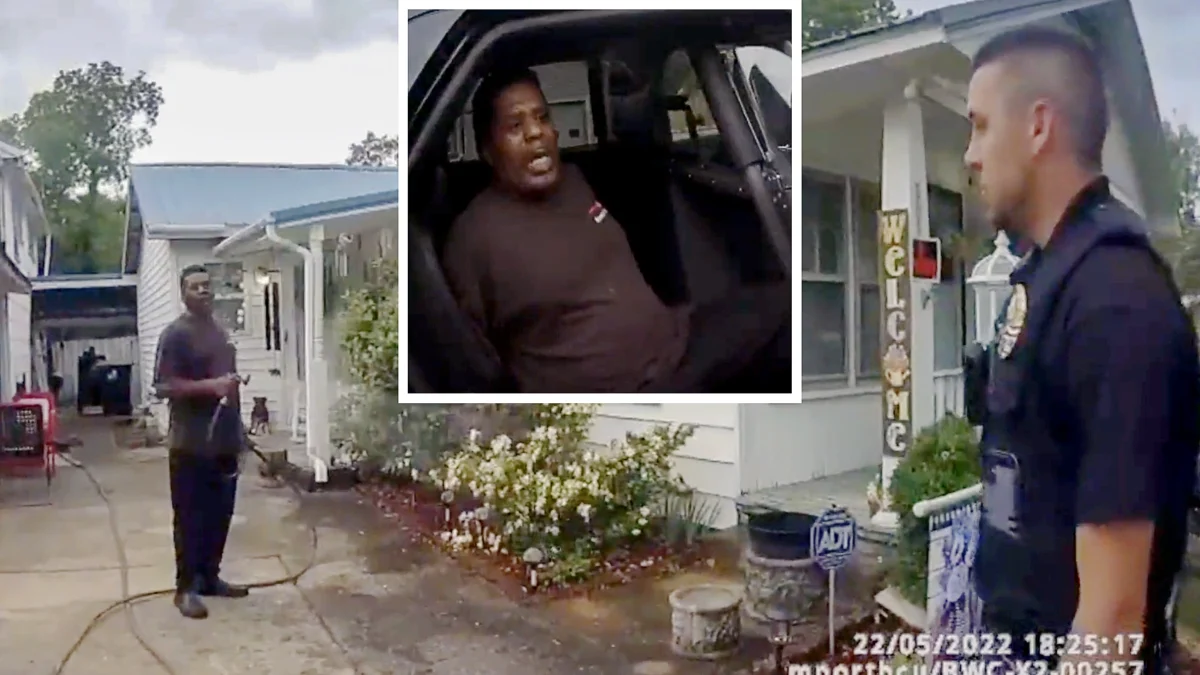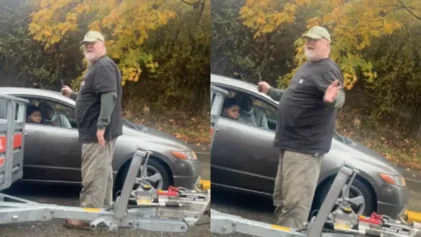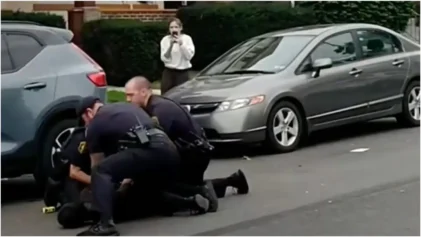Michael Jennings, a Black pastor from Childersburg, Alabama, was watering his neighbor’s flowers when he was confronted by police officers who demanded his identification, accusing him of acting “suspicious.”
But Jennings, who is also a former police officer, knew his constitutional rights and refused to hand over his identification, telling the officers that he was “Pastor Jennings,” who lives across the street and that he was watering his neighbor’s plants while they were out of town. He even dared the cops to arrest him.
“Lock me up and see what happens,” he said, the body camera footage depicts.

The three Childersburg cops, Christopher Smith, Justin Gable and Jeremy Brooks, arrested him on a charge of obstruction — which was dismissed just over a week later.
However, when Jennings filed a lawsuit, an Alabama judge dismissed it on the basis of qualified immunity — a controversial legal doctrine that protects law enforcement officers from lawsuits, even when making unlawful arrests — unless that constitutional right has been “clearly established” by prior court decisions.
Last week, an appellate court unanimously disagreed with the lower court’s decision, ruling that the cops had no probable cause to arrest Jennings, reviving his lawsuit and allowing it to proceed.
“Finally, Pastor Jennings will have his day in court and prove that wearing a badge does not give you the right to break the law,” Jennings’ attorney, Harry Daniels, told The Associated Press.
The three-judge panel of the 11th U.S. Court of Appeals referred to a prior court decision to determine the cops had violated clearly established law, which is why they are not entitled to qualified immunity.
Jennings argues that he was not arrested for refusing to give those three pieces of information but rather because he declined to show physical identification. In support, Jennings relies on this court’s decision in Edger v. McCabe, 84 F.4th 1230 (11th Cir. 2023).
Edger held that an Alabama police officer violates clearly established law when she arrests a person solely for failing to provide a driver’s license or physical identification under Alabama Code § 15- 5-30. 84 F.4th at 1239–40. We agree that this case falls within the purview of Edger.
The “three pieces of information” referenced in the ruling refers to an Alabama law that only requires a person to provide a name, address and explanation of their actions if a cop determines there is enough reasonable suspicion that a crime has been committed.
And Jennings did just that within minutes of their arrival.
“I’m supposed to be here,” he told them. “I’m Pastor Jennings. I live across the street. . . . I’m looking out for the house while they gone. I’m watering their flowers.”
The Call
The incident took place on May 22, 2022, after Childersburg police received a call from a white woman named Amanda about a suspicious car parked in front of her neighbor’s home.
Amanda said she was concerned because she also spotted a younger Black male outside the home, and the residents of the home were an elderly white couple.
However, once the cops had arrested Jennings and placed him in the back of the patrol car, Amanda informed the cops she had made a mistake.
“He does live right there, and he would probably be watering their flowers; this is probably my fault,” she told the officers, body camera video shows.
Also, the suspicious car parked in front of the home did not even belong to Jennings, as the cops learned when they ran its license plate.
But the cops insisted on taking him to jail anyway.
“She does tell us it’s a mistake and all that stuff, but at this point, he’s already collected the charge,” one of the cops told the pastor’s wife.
“Once we place him under arrest, we can’t unarrest him.”
The Lower Court
The lower court dismissed Jennings’s lawsuit on the basis that the cops had probable cause to arrest him because he had failed to identify himself.
But as already mentioned, he told the cops who he was, where he lived and what he was doing within seconds of their arrival.
But the cops wanted to see his physical identification in order to check him for bench warrants. However, Jennings made it clear he was not going to provide his identification.
“Oh, no, man, I’m not gonna give you no ID,” he told them. “I ain’t did nothing wrong.”
The cops continued to persist with their demands, but Jennings held his ground.
“You see a Black man out here watering the neighbors’ flowers,” he said. “You have no right to approach me if I ain’t did nothing suspicious or nothing wrong. Told him I’m a pastor, I pastor at a church.”
But he ended up going to jail anyway, despite Amanda’s assertion that she had made a mistake.
“You talked your way into going to jail,” one of the cops told him, confirming it was his words that got him arrested.
It took nine days for the charge of obstructing justice to be dismissed, allowing him to file his lawsuit, which accuses the cops of violating his First Amendment rights by arresting him in retaliation for his words as well as violating his Fourth Amendment rights to be free from unreasonable seizures and searches.
However, U.S. District Judge R. David Proctor dismissed the lawsuit, claiming the cops had probable cause to arrest him because “a savvy criminal could easily pick up a watering hose to use as a ruse when officers approach.”
However, the appellate court had a different viewpoint.
“While it is always advisable to cooperate with law enforcement officers, Jennings was under no legal obligation to provide his ID,” the ruling states.
“Therefore, officers lacked probable cause for Jennings’ arrest for obstructing government operations because Jennings did not commit an independent unlawful act by refusing to give ID.”


